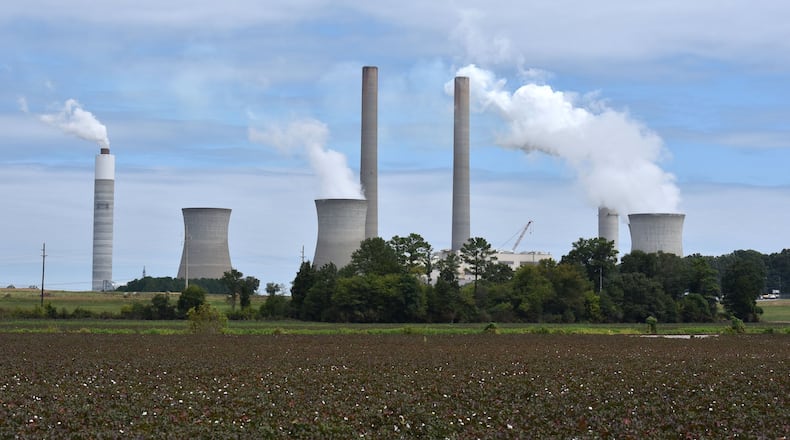Just weeks after a major rate increase began hitting many Georgians’ electricity bills, Georgia Power is asking to collect an even bigger sum from ratepayers to cover the cost of the coal, gas and nuclear fuel used in its power plants.
The company wants ratepayers to pay a tab of least $2.1 billion to cover past fuel expenses and expected future ones. But customers could be on the hook for an even larger sum of $2.6 billion, if fuel prices bounce back to near their pandemic-era highs.
If Georgia Power’s request is approved, the average customer’s bill could go up anywhere between $17 and $23 per month, starting June 1.
The Georgia Public Service Commission (PSC) — the five-member elected body that regulates the utility — will have the final say on whether to approve or tweak the company’s ask. However, since Georgia Power does not earn profits on fuel expenses, utility regulators have traditionally allowed those costs to be passed on to customers with little adjustment.
The company attributed this request for an enormous rate increase to sky-high global fuel prices. While the cost of natural gas has fallen recently, the company said prices nearly tripled between 2020 and 2022. Coal prices also rose during the depths of the COVID-19 pandemic.
“At Georgia Power, we understand that energy costs are an important part of every family’s budget,” Georgia Power spokesman John Kraft said in a statement. “Just as Georgians paid higher prices at the gas pump in 2022, Georgia Power also paid more for the natural gas (on average three times more) and other fuels we used to generate electricity.”
As part of its request, Georgia Power did propose raising the Income Qualified Senior Citizen Fuel Discount from $6 to $8 per month, which it offers to customers 65 years of age and older with a household income of $29,160 or less.
The looming rate increase comes on the heels of another major hike approved just two months ago by the PSC.
That plan allows Georgia Power to collect $1.8 billion more from its customers through higher rates over the next three years. The company said the increase was needed to pay for transmission upgrades and to allow it to maintain reliable service.
As a result, the average Georgia Power customer is already paying about $4 a month more for electricity than they were last year. Larger, additional rate hikes will take effect in both 2024 and 2025, but the monthly impact of those on customer bills is not yet known.
Before that rate increase took effect on Jan. 1, Georgians’ monthly electricity bills were already among the most expensive in the country. The average monthly residential electricity bill in Georgia was $134.11 — seventh highest in the country and about $13 above the national average — according to the most recent (2021) federal data available. The data includes bills from all electricity providers in the state — not just Georgia Power.
Even more rate hikes could follow this year to pay for the cost of the two new nuclear reactors at Plant Vogtle, which are more than five years behind schedule.
Once fuel is loaded into the second of the two units — which could happen as soon as this summer — the company could ask the PSC to begin reviewing whether it can collect “prudently” incurred costs from customers.
During an earnings call last month, Georgia Power’s parent — Southern Company — reported profits last year reached $3.5 billion, up from $2.4 billion in 2021. However, the company also announced new delays and cost increases in the completion of both Vogtle units.
As households continue to feel the strain of inflation, consumer advocacy and environmental protection groups blasted the company’s fuel cost recovery request and its long-term energy plans.
While Georgia Power will shutter most of its remaining coal-fired plants by 2028, the company plans to add 2,000 megawatts of new natural gas capacity in the coming years. Given the volatility of gas prices, critics questioned whether the company’s plan to increase reliance on natural gas would inflict more financial pain on customers.
“When gas prices soar, Georgia Power doesn’t lose a penny of profit, but its customers are forced to pay skyrocketing power bills,” said Jennifer Whitfield, a senior attorney at the Southern Environmental Law Center. “And yet Georgia Power keeps investing in methane gas and pushing aside popular, affordable programs like rooftop solar. It’s time for change.”
A PSC spokesman said the commissioners would not comment on the company’s fuel case until the proceedings are complete.
Hearings on Georgia Power’s request are set to begin on May 2 and the commission will issue a final decision in the case on May 16.
About the Author
Keep Reading
The Latest
Featured




